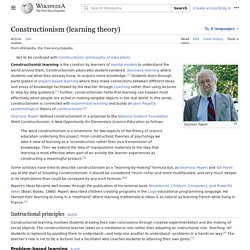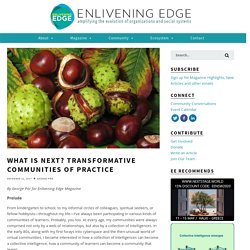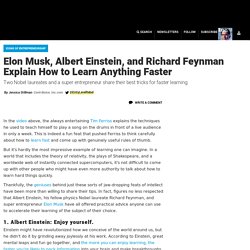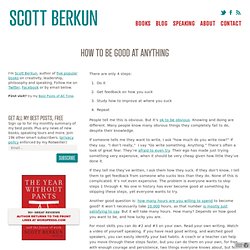

Growth Mindset Introduction: What it is, How it Works, and Why it Matters. Constructionism (learning theory) Learning theory involving the construction of mental models Seymour Papert defined constructionism in a proposal to the National Science Foundation titled Constructionism: A New Opportunity for Elementary Science Education as follows: The following five strategies make problem-based learning more effective: Digital storytelling is another application of constructionism to the social sciences.

Students can visit institutions in the local community, to understand and document their histories, develop local maps using tools like OpenStreetMap to enrich digital maps and debate the purpose and activities of local public institutions to build an understanding of political science (civics). Digital storytelling has been used by government schools in Bengaluru to develop students understanding in the social sciences. Reinventing Organizations. By George Pór for Enlivening Edge Magazine Prelude From kindergarten to school, to my informal circles of colleagues, spiritual seekers, or fellow hobbyists—throughout my life—I’ve always been participating in various kinds of communities of learners.

Probably, you too. At every age, my communities were always comprised not only by a web of relationships, but also by a collection of intelligences. In the early 80s, along with my first forays into cyberspace and the then-unusual world of virtual communities, I became interested in how a collection of intelligences can become a collective intelligence, how a community of learners can become a community that learns.
No wonder that a decade later, as soon as I read the phrase “communities of practice” mentioned first in public, in the company newsletter of Xerox, I trekked down from Santa Cruz, California, to Palo Alto, California, to meet the article’s author, Etienne Wenger. What Is a CoP? Last time I defined the term, it was this: 3 Geniuses' Best Tips to Accelerate Learning. In the video above, the always entertaining Tim Ferriss explains the techniques he used to teach himself to play a song on the drums in front of a live audience in only a week.

This is indeed a fun feat that pushed Ferriss to think carefully about how to learn fast and come up with genuinely useful rules of thumb. But it's hardly the most impressive example of learning one can imagine. In a world that includes the theory of relativity, the plays of Shakespeare, and a worldwide web of instantly connected supercomputers, it's not difficult to come up with other people who might have even more authority to talk about how to learn hard things quickly. Thankfully, the geniuses behind just these sorts of jaw-dropping feats of intellect have been more than willing to share their tips. 1.
Einstein might have revolutionized how we conceive of the world around us, but he didn't do it by grinding away joylessly at his work. Carol Dweck: The power of believing that you can improve. 11 principles for developing the learning organisation. Learning To Share. “Share everything.

Don't take things that aren't yours. Put things back where you found them” - Robert Fulghum So another wonderful Christmas has just passed and my two children had more new toys than they knew what to do with. Of course that didn’t stop them wanting what their sibling had, nor did it stop them from being very protective of their new possessions; even the ones they weren’t playing with. Learning to share is a very useful skill that all humans need to acquire at some point in their lives, opening up as it does the possibility of a greater than zero sum game; and, for me, it seems to come into ever greater focus around this time of year.
I am one of a group of trainers who likes to do a lot of co-training when teaching Scrum (and other things). “Success always comes when preparation meets opportunity” - Henry Hartman What material will you use? I also use the word “prepare” in a couple of additional contexts.
Ken Robinson: How to escape education's death valley. How to be good at anything. There are only 4 steps: Do itGet feedback on how you suckStudy how to improve at where you suckRepeat People tell me this is obvious.

But it’s ok to be obvious. Knowing and doing are different. Many people know many obvious things they completely fail to do, despite their knowledge. If someone tells me they want to write, I ask “how much do you write now?” If they tell me they’ve written, I ask them how they suck. Another good question is: how many hours are you willing to spend to become good? For most skills you can do #2 and #3 on your own. (This post partially inspired by a chat with Eric Barker and an email from Maria Brophy)
Le modèle d’acquisition de compétences de Dreyfus.